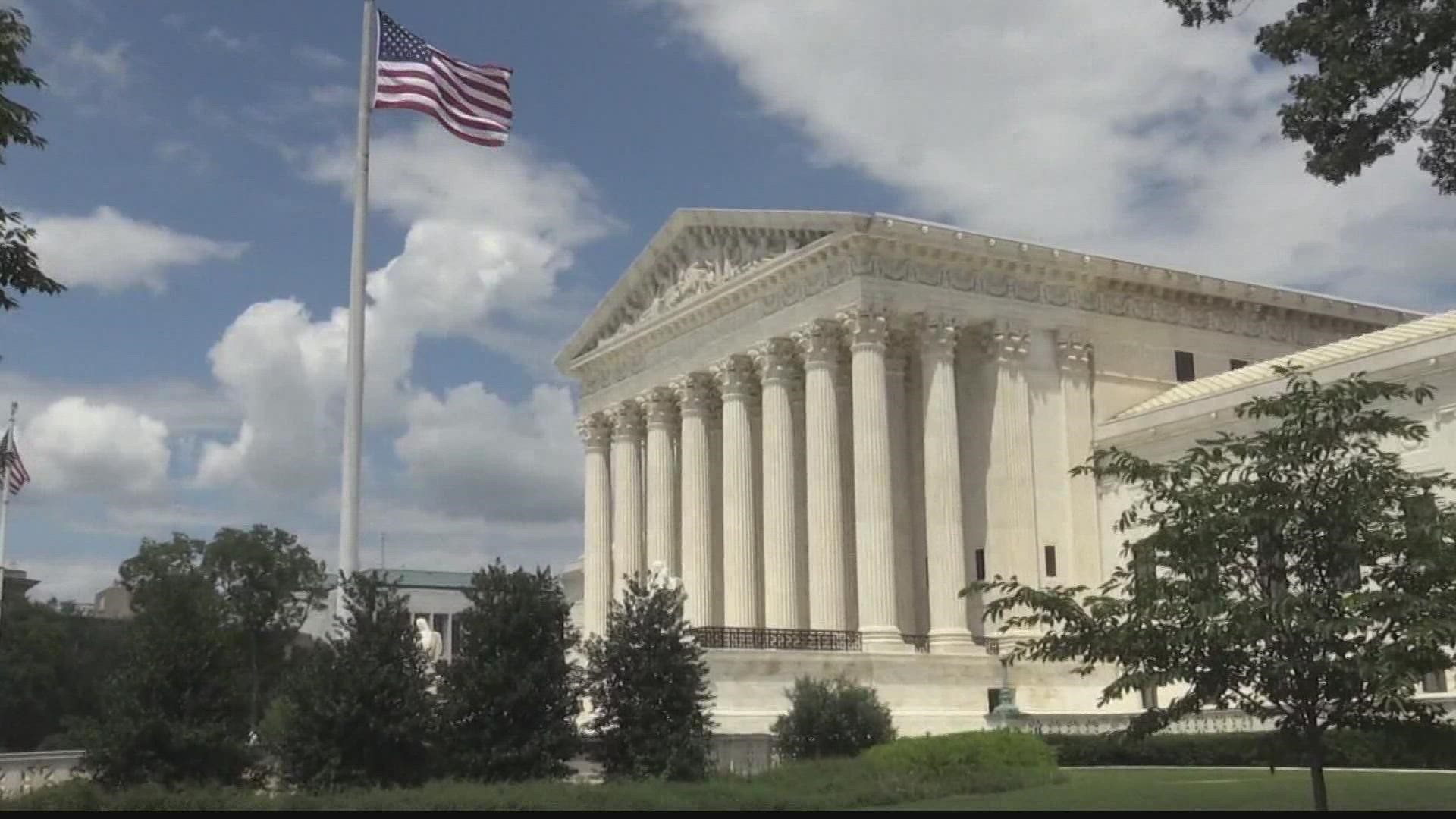ATLANTA, Georgia — The Supreme Court of the United States is preparing to hear oral arguments in two major cases that could affect student admissions. The cases involve race-based affirmative action at Harvard University and the University of North Carolina. The court's ruling could affect schools across the country.
Affirmative action stemmed from an executive order by President John F. Kennedy in the 1960s that urged the hiring of more minorities in businesses across the country. Associated policies later expanded into the classroom in an effort to afford people of color more opportunities for higher education. However, Affirmative Action ran into a roadblock when the Supreme Court struck down racial quotas in 1978.
Georgia State University law professor Tanya Washington said it could be likely that the Supreme Court, with its current makeup, could invalidate what she called the "pursuit of racial diversity." She pointed to the High Court's ruling earlier this summer in Dobbs v. Jackson, which effectively overturned Roe v. Wade.
"When you've got different people with different backgrounds and lived experiences, it enriches the learning environment for everyone," Washington said. "Recognizing and allowing for race to inform admissions decisions has ensured we have diversity on our campuses.”
Washington argues overturning Affirmative Action undo decades of more inclusivity in colleges and universities, especially in Georgia. In 1980, White students represented nearly 85%of the University System of Georgia. Just 21,000 people of color were enrolled in college.
By 2021, the student population grew to more than 340,000. While the data was broken down more by race, it showed more than 40-times the growth for Hispanic, Latino, Asian, Native American, Hawaiian and other Pacific Islander students. Black student populations across Georgia colleges and universities grew by more than four-and-a-half times.
11Alive legal analyst Page Pate said opponents of Affirmative Action argue considering race as a factor in admissions violates the Equal Protection clause, part of the 14th Amendment of the Constitution.
"The arguments haven't changed, but these lawyers are hoping the Supreme Court has changed, and so they will look at these old arguments with a different view, and perhaps finally overturn any school's attempt at using race during the admissions process," Pate said. "Once you start cutting into Affirmative Action, the Constitutional basis for it, then that opens up all types of challenges to any type of affirmative action program that’s being used in any sort of governmental setting across the country.”
Washington said erasing Affirmative Action could lead to fewer minorities attaining degrees and going into lucrative careers.
"You won't then have them graduating and becoming the next generation of judges, lawyers, doctors, and nurses and teachers and pilots," Washington said. "I think that doesn’t benefit the White students and it certainly doesn’t benefit the students who will no longer be afforded the opportunity to attend colleges and universities. I don’t think it’ll bode well for our society at large.”
Thomas Dortch, chairman of the 100 Black Men of America, said crime could spike as a result of people of color not being afforded as many higher education opportunities.
“Having them out struggling with no jobs, no real careers, and you see what happens with poverty, we’re seeing a lot more crime and more gun violence across the board, not just in Black communities, but across the board," Dortch said. “When you look at the University System of Georgia, we’ve seen some improvements a little bit over the last few years, but it doesn’t make up for all the disparities over the years. So our colleges have been playing catchup."
The Supreme Court is scheduled to hear oral arguments on Affirmative Action on October 31.

